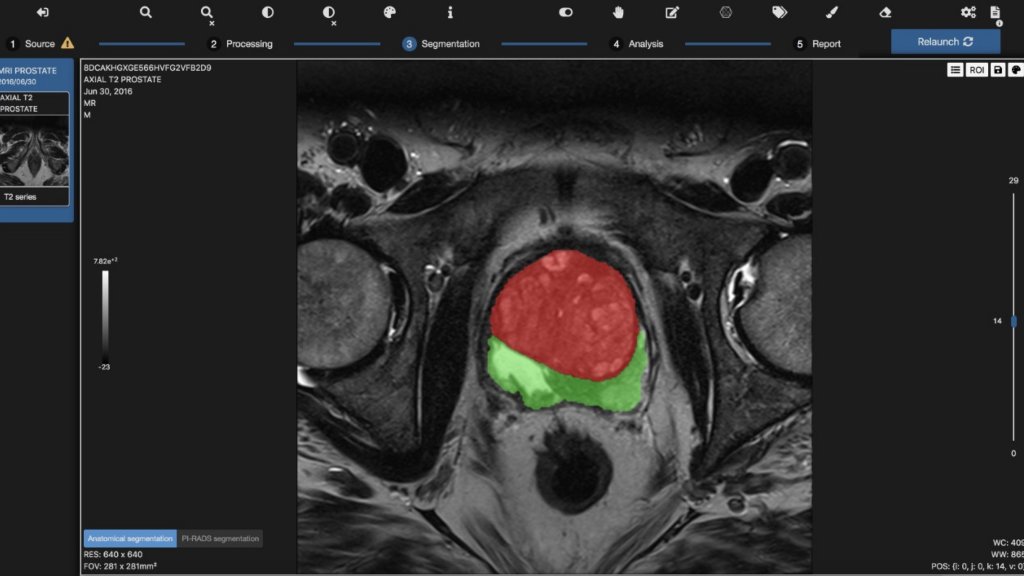
The expansion of Artificial Intelligence in recent years has been remarkable in all areas of society. In particular, AI is revolutionizing the healthcare industry by providing medical professionals with the tools to diagnose disease with greater efficiency and precision. Quibim is leveraging AI to transform medical images into actionable predictions.
Today, medical imaging tests, such as magnetic resonance imaging (MRI), computed tomography (CT) and positron emission tomography (PET), are performed at every stage of the disease, from diagnosis to patient recovery. Quibim has taken advantage of this standard of care to offer different AI solutions that deeply analyze the image and extract critical information to detect and diagnose diseases more quickly.
By analyzing vast amounts of patient data, AI can identify patterns that would otherwise go unnoticed and provide clinicians with a broader perspective on a particular disease or condition. Specifically, Quibim’s solutions have the ability to automatically complete radiology reports and draw conclusions, reducing the workload of healthcare professionals and accelerating early detection, treatment, and prognosis of diseases.
Through its imaging biomarker panels, Quibim analyzes the mechanisms of diseases such as cancer, improves drug programs and monitors the effectiveness of treatment. All this through a whole body analysis approach for each patient, promoting tissue agnostic precision medicine, that is, regardless of the type of cancer or where in the body it originated.
Its solutions, QP Prostate and QP Brain, have the ability to detect diseases of the prostate and brain by comparing new images with similar images from a proprietary database with already established diagnoses.
Forecast of new drugs
In addition, top-tier pharmaceutical companies rely on Quibim solutions for their new drug forecasting, enabling them to improve drug programs and answer critical questions, thanks to real-world-evidence (real world evidence, RWE) from which Quibim software is based.
The company also helps identify clinical trial candidates or patients most likely to respond to a drug by monitoring toxicity and adverse events through AI models. “This type of collaboration drives the creation of new AI products to meet the urgent unmet needs of patients and healthcare professionals,” points out Ángel Alberich-Bayarri, CEO of Quibim.
However, AI is not limited to disease diagnosis, it is also used in other areas, such as finance, logistics and customer service. As businesses and industries look for ways to stay ahead of the competition, AI is emerging as a powerful tool for innovation and growth. With its ability to analyze data and make predictions, AI is helping businesses make smarter decisions, improve operational efficiencies, and create new opportunities for professionals to work alongside AI and develop new skills.
AI market expansion
In 2022, the global AI market was valued at $119.78 billion and is expected to expand with a compound annual growth rate of 38.1% between 2023 and 2030. Currently, the AI solutions market share is dominated by Advertising and Media, followed by the financial and healthcare sectors, with the largest being The medical imaging segment is the largest in this industry, with the industry forecast to gain a leading share by 2030.
As society advances, it is evident that AI will play an increasingly important role in shaping the future of work and society. The potential applications of AI are virtually limitless, and as technology continues to evolve, you can expect to see even more innovative and disruptive solutions in the years to come. Whether it’s in disease diagnosis, finance or customer service, AI has the potential to transform the way we work and live.



